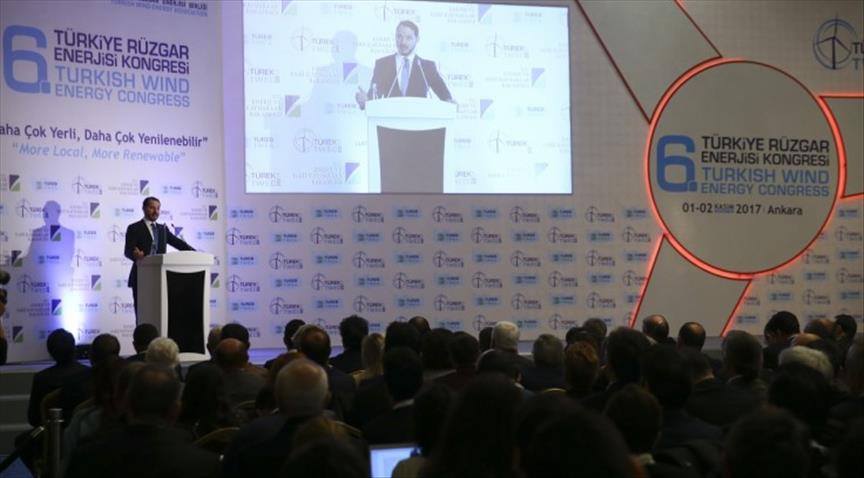Turkish Renewable Energy Resources Support Mechanism (YEKDEM) will be will be replaced by a more competitive option, the Renewable Energy Resources Zone Areas (YEKA) by 2020, Turkey's Energy and Natural Resources Minister Berat Albayrak said on Wednesday.
Speaking at the 6th Turkish Wind Energy Congress in Ankara, Albayrak acknowledged that the YEKDEM had contributed much to the renewables sector during its operation, but advised that the mechanism needs to be replaced.
The Renewable Energy Resources Zone Areas (YEKA) will allow Turkey to progress in a more competitive manner, the minister explained.
Turkey plans to supply most of its energy needs from domestic resources and to that end is holding wind and solar auctions for renewable energy resources for 1,000 megawatts each of installed capacity.
Albayrak noted that the YEKA process provides support and allows incentives for investors that will positively impact public finances.
He stressed that renewables will play an important role in decreasing Turkey's energy and mineral resources import bill, which on average reaches $55 billion per annum.
"In the last two years, in particular, 55 percent of new power capacity brought online in the country was from renewables in 2016 and 64 percent in 2017," he said.
This move towards renewables is poised to continue with further new wind tenders planned as part of the YEKA process, he explained, adding that 8 out of ten of the biggest companies in the world have applied for YEKA tenders in Turkey, reflecting the potential in the country.
- TANAP project
Albayrak announced plans to have the Trans-Anatolian Natural Gas Pipeline (TANAP) operational by the middle of 2018 with pipeline testing planned for the beginning of next year.
TANAP is a natural gas pipeline, currently under construction, and stretching from the Turkey-Georgia border to the Turkey-Greece border to supply natural gas both to Turkey and also to European countries.
The project will start transporting natural gas from Azerbaijan to Turkey next year and to Europe in the first quarter of 2020 via the Trans Adriatic Pipeline (TAP).
TANAP's initial capacity per year will be 16 billion cubic meters, out of which Turkey will utilize 6 billion cubic meters while the remaining 10 billion cubic meters will be delivered to Europe.
Reporting by Murat Temizer
Writing by Ebru Sengul
Anadolu Agency
energy@aa.com.tr


